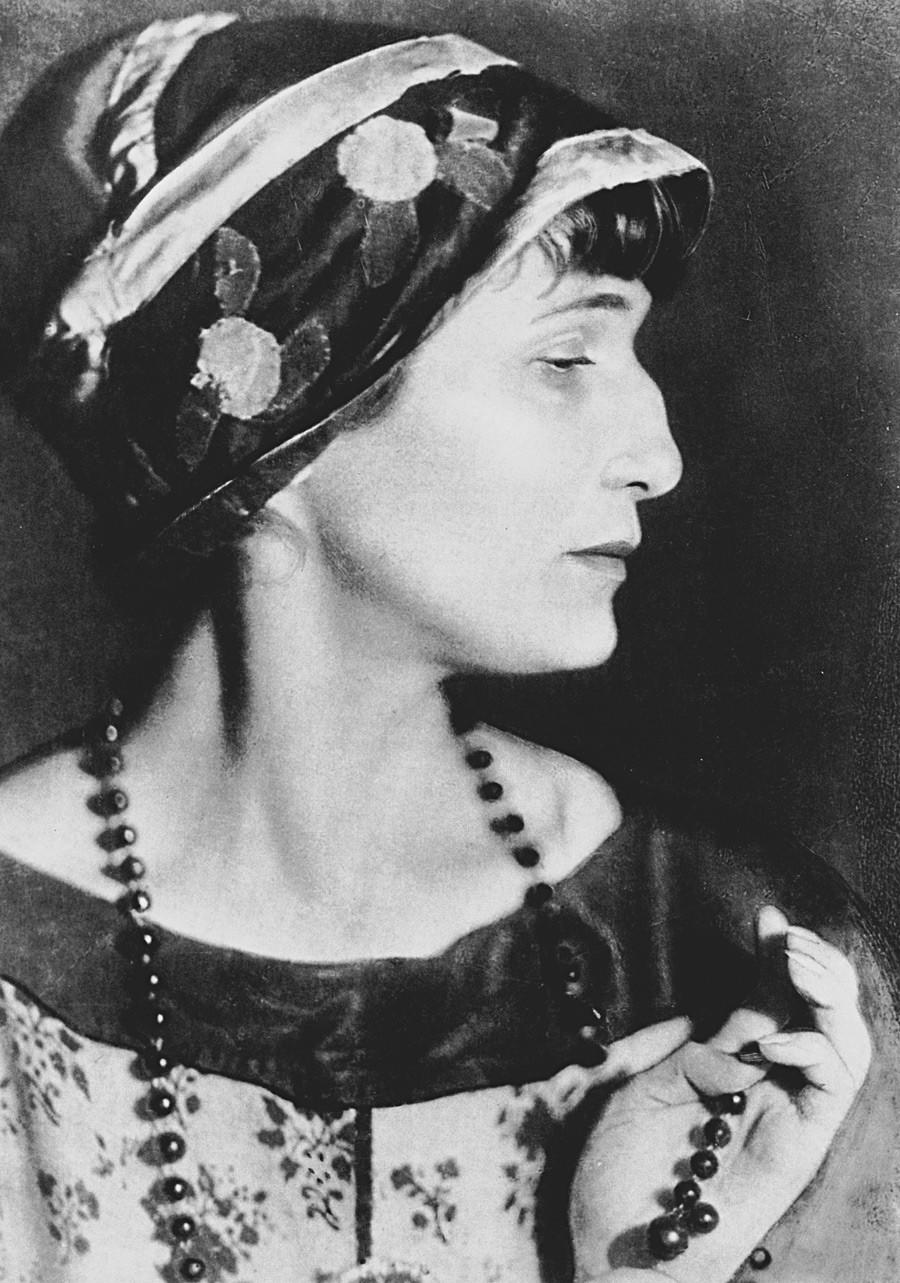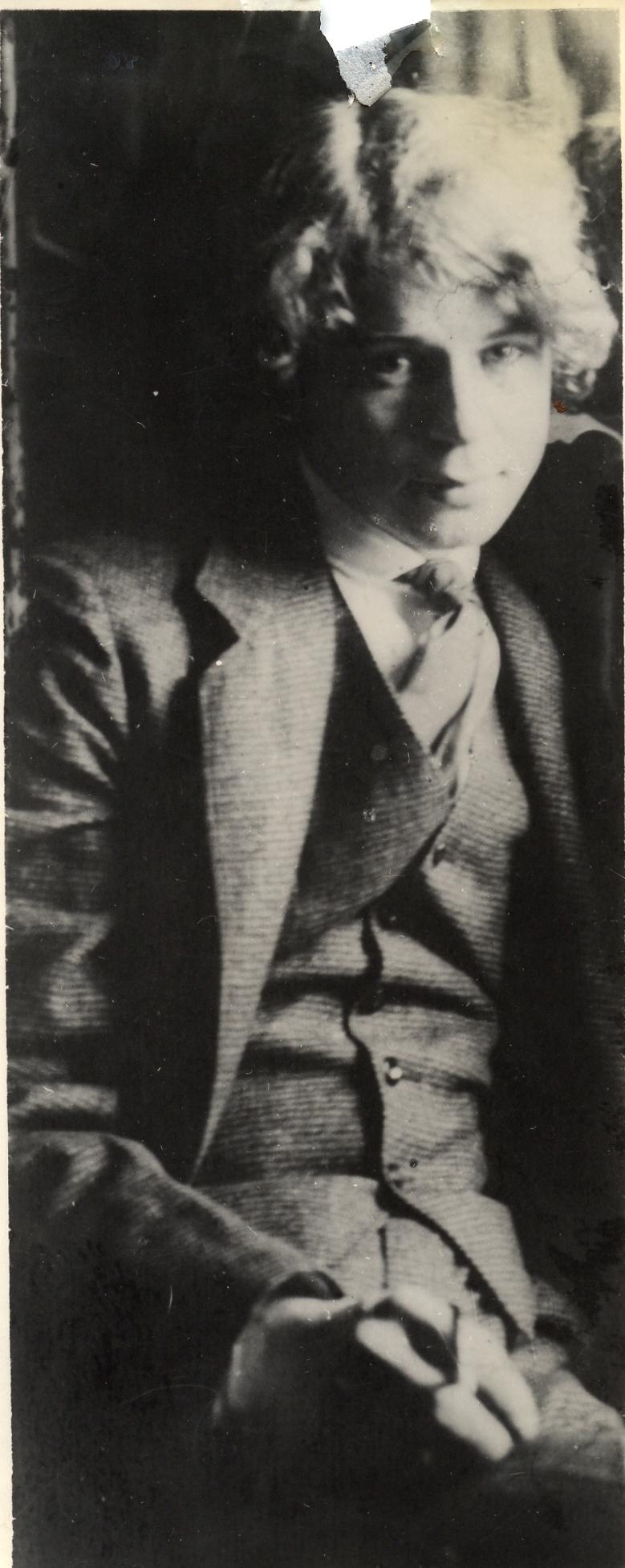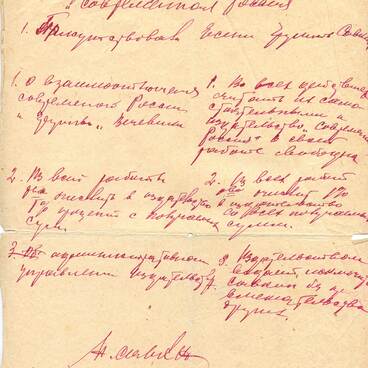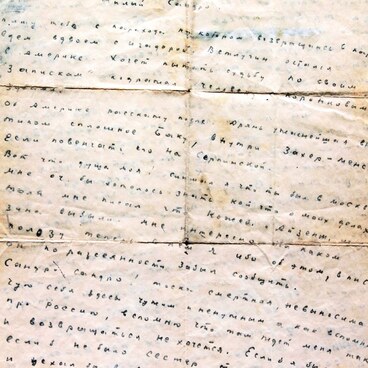Sergei Esenin met Anna Akhmatova in 1915: on the 25th of December Nikolai Klyuyev, another representative of the New Rural trend in Russian poetry, brought the poet to Tsarskoye Selo. The poets read their poems to each other and talked. When they parted, Nikolai Gumilyov signed and presented Yesenin with his book ‘Someone Else’s Sky’ and Anna Akhmatova with her poem “By the Sea”. On the first page of the book in black ink she wrote: “To Sergey Yesenin - Anna Akhmatova commemorating the meeting. Tsarskoye Selo. December 25th 1915”. These pages remained in the possession of Sergei Esenin’s sister Ekaterina for a long time.
Georgy Adamovich called this poem by Akhmatova ‘a triumph of her talent’. ‘Having retained her original style, her original words, she brings her trembling lyricism to extreme tension, ’ the poet wrote.
Later she told Alexander Loman about her first meeting with the poet: ‘Looking at this portrait now, I cannot help but remember those now distant times. It was the way Yesenin came to me at Tsarskoye Selo during the Christmas holidays in 1915… He read magnificently, though a little loudly for my small room. Those words he thought were of particular importance, he stretched out, and they really stood out. Reading, Yesenin was even more charming. Sometimes he looked straight into my eyes and in those moments, I felt that he really “meets everything, accepts everything”, one thing was distressing, and I kept this distress for him while he was with us, what was distressing is the last line “I have come to this earth to leave it soon”. I felt his sincerity and believed him when he read: “To you alone I weave a wreath, I sprinkle flowers on the path of grey. O Rus, with you I rest with ease, 'tis you I love, to you I pray”.
Akhmatova’s attitude to Esenin’s later lyrics subsequently changed. According to Lydia Chukovskaya, in 1925 she gave an extremely unkind characteristic of Yesenin’s poems: ‘I have just re-read it. It is very bad, very monotonous, and reminds me of a NEP flat: icons are still hanging, but it’s crowded, and someone is drinking and pouring out their feelings in the presence of strangers.
After the poet died in 1925, Anna Akhmatova dedicated a poem to his memory:
A death is often quite a simple business,
Without a thought or illness life can end.
But fate for Russian bard’s a fickle mistress –
To him a shining death she doesn’t send.
For flighty soul a bullet’s so much better
To prise the gates to heaven’s realm apart,
Or shrieking horror’s paw, without a fetter
To squeeze the vital force from sponge-like heart.
Georgy Adamovich called this poem by Akhmatova ‘a triumph of her talent’. ‘Having retained her original style, her original words, she brings her trembling lyricism to extreme tension, ’ the poet wrote.
Later she told Alexander Loman about her first meeting with the poet: ‘Looking at this portrait now, I cannot help but remember those now distant times. It was the way Yesenin came to me at Tsarskoye Selo during the Christmas holidays in 1915… He read magnificently, though a little loudly for my small room. Those words he thought were of particular importance, he stretched out, and they really stood out. Reading, Yesenin was even more charming. Sometimes he looked straight into my eyes and in those moments, I felt that he really “meets everything, accepts everything”, one thing was distressing, and I kept this distress for him while he was with us, what was distressing is the last line “I have come to this earth to leave it soon”. I felt his sincerity and believed him when he read: “To you alone I weave a wreath, I sprinkle flowers on the path of grey. O Rus, with you I rest with ease, 'tis you I love, to you I pray”.
Akhmatova’s attitude to Esenin’s later lyrics subsequently changed. According to Lydia Chukovskaya, in 1925 she gave an extremely unkind characteristic of Yesenin’s poems: ‘I have just re-read it. It is very bad, very monotonous, and reminds me of a NEP flat: icons are still hanging, but it’s crowded, and someone is drinking and pouring out their feelings in the presence of strangers.
After the poet died in 1925, Anna Akhmatova dedicated a poem to his memory:
A death is often quite a simple business,
Without a thought or illness life can end.
But fate for Russian bard’s a fickle mistress –
To him a shining death she doesn’t send.
For flighty soul a bullet’s so much better
To prise the gates to heaven’s realm apart,
Or shrieking horror’s paw, without a fetter
To squeeze the vital force from sponge-like heart.



